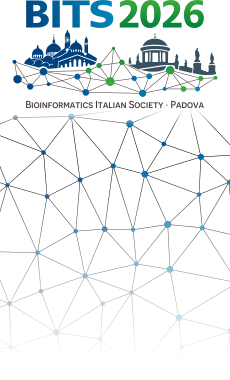The candidate will spearhead computational analyses for cutting edge projects in the context of Cancer Research (Ovarian Cancer, Thymoma, Glioblastoma Multiforme) and with a strong focus on organoid-based disease modelling and single cell multiomics. S/he will work in close interaction with wet lab biologists in the analysis of a diverse array of omics data, from the experimental design to the subsequent downstream analyses and including the development of new computational pipelines aimed at the integration of different omics sources.
To apply, candidates must satisfy the following requirements:
• PhD in Computational Biology, Systems Biology, Data Sciences or equivalent;
• Strong knowledge in either Python or R programming;
• Knowledge of UNIX environment and bash scripting;
• Familiarity with code versioning systems (e.g. git);
• Proven expertise in handling omics data (from QC to downstream analysis) on at least two of the following: single-cell RNASeq, single-cell ATACSeq, Bulk RNASeq, ChiPSeq, DNASeq (Whole Genome, Whole Exome, Targeted Resequencing), Methylation Arrays;
• Proven experience of data analysis public datasets and repositories (e.g. TCGA);
• Excellent teamwork skills in a multidisciplinary environment;
• Strong organizational skills and propensity to structure analytical steps in well-documented and reproducible workflows;
• Ability to manage competing priorities in a fast-paced environment and to work independently
The following additional skills will be considered a plus:
• Previous usage of containers (Docker, Singularity or equivalent) for data reproducibility;
• Experience with data visualization frameworks (Shiny, Dash or equivalent);
Experience with interactive graphical visualization libraries (D3JS, Plotly or equivalent)
Relevant Bibliography:
1. Germain, Testa, Taming Human Genetic Variability: Transcriptomic Meta-Analysis Guides the Experimental Design and Interpretation of iPSC-Based Disease Modeling, Stem Cell Rep., https://doi.org/10.1016/j.stemcr.2017.05.012
2. Germain, Vitriolo et. al. RNAontheBENCH: computational and empirical resources for benchmarking RNAseq quantification and differential expression methods, Nucl. Ac. Res., https://doi.org/10.1093/nar/gkw448
3. Signaroldi, Laise et al. Polycomb dysregulation in gliomagenesis targets a Zfp423-dependent differentiation network, Nat. Comm. https://doi.org/10.1038/ncomms10753
4. Lo Riso, Villa et al A cell-of-origin epigenetic tracer reveals clinically distinct subtypes of high grade serous ovarian cancer, BioRxiv, https://doi.org/10.1101/484063
5. Velletri, Villa et al. Single cell derived organoids capture the self-renewing subpopulations of metastatic ovarian cancer, BioRxiv, https://doi.org/10.1101/484121
6. Lopez-Tobon, Villa, Cheroni et al. Human Cortical Organoids Expose a Differential Function of GSK3 on Cortical Neurogenesis, Stem Cell Rep., https://doi.org/10.1016/j.stemcr.2019.09.005
Computational Biologist at the High Definition Disease Modelling Laboratory
Location
Milan
Referent
Giuseppe Testa
Deadline for application
30/06/2020
Contact




